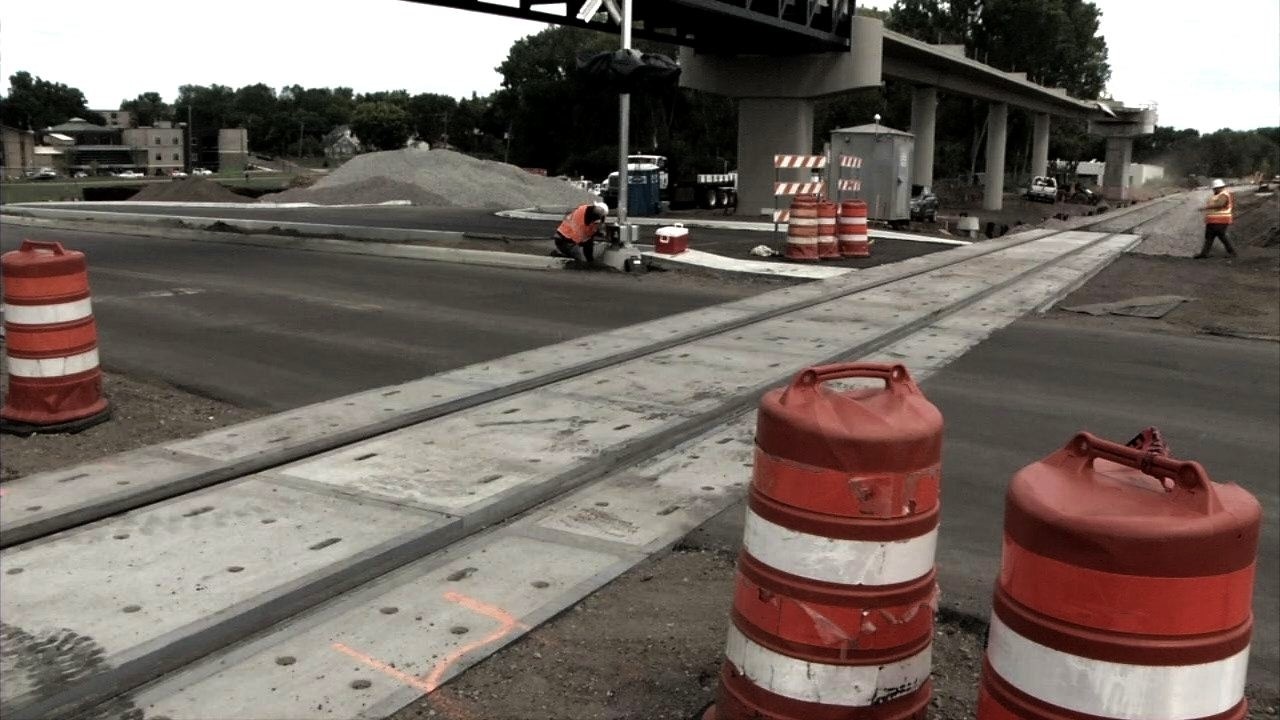Review of SWLRT points to 3 major reasons for project delays, cost increases
[anvplayer video=”5132908″ station=”998122″]
A newly released report points to three key factors as reasons for many of the continuing delays and rising costs associated with the Southwest Light Rail Transit (SWLRT) project.
Friday, the Office of the Legislative Auditor (OLA) released the findings of its special review of the project, which was ordered by the Minnesota Legislature this spring.
The project — an effort to connect downtown Minneapolis to Eden Prairie, Hopkins, Minnetonka and St. Louis Park — has been widely criticized due to repeated delays and rising costs.
Back when the Federal Transit Administration approved the Metropolitan Council’s application to pursue funding for the project in 2011, the line was expected to open to the public in 2018 and cost $1.25 billion. Construction didn’t actually start until 2019 and the project now has an estimated price tag of $2.74 billion — $535 million of which is still unfunded — and isn’t expected to be finished until 2027.
While a host of changes to the project has led to delays and increased costs — OLA noted 622 change orders had been approved as of April 29, 2022, the vast majority of which resulted in additional costs — the review highlighted three changes that had the most significant impact on the project’s delays and increased costs:
- Adding a previously deferred station in Eden Prairie
- Extending a concrete barrier wall between the freight rail and light rail lines in Minneapolis
- Changing the construction method for the tunnel through the Kenilworth Corridor in Minneapolis
Those three changes alone account for more than half of the $225 million added by all of the change orders approved by the Met Council since construction began.

The Southwest Light Rail project remains under construction as more lawmakers call for an audit of the project. (KSTP/FILE)
OLA also noted that the Eden Prairie Town Center Station barrier wall changes were expected all the way back when the Met Council started seeking bids for the project. However, the council opted to leave those changes out of the project’s scope because it didn’t want to delay the bidding process and possibly have fewer contractors or a delayed project. The Kenilworth Corridor changes, on the other hand, were caused by “unforeseen conditions,” Met Council officials told OLA.
RELATED: Engineers give go-ahead to resume light rail construction near damaged condos
The Kenilworth Corridor area also had issues earlier this year when nearby condominium buildings found cracks that were blamed on the SWLRT construction. However, an engineering firm hired by the Met Council minimized the construction’s impact on the damages to the condo buildings.
RELATED: Senators call on Met Council to ‘take responsibility’ for impacts of SWLRT construction
Met Council Chairperson Charles Zelle said in a letter to OLA that the report accurately documents the many changes and reasons for the delays and increased costs of the project.
“As no one report can provide the necessary detail of the nearly 40 years of Southwest Light Rail Transit (LRT) project history, thousands of public meetings, and multiple studies and reports, we
appreciate the care and detailed work undertaken in the review of the project’s timeline and budget,” Zelle’s letter says in part.
Friday, the Met Council told 5 EYEWITNESS NEWS, “While no one report can provide the necessary details of the nearly 40 years of the project’s history, this independent report confirms the Met Council has been transparent about the costs and timeline every step of the way. We strongly believe accountability and transparency are critical to ensuring public programs and projects are run and managed efficiently.”
OLA is set to release another report evaluating the SWLRT project early next year. That review will look more into whether the Met Council properly accounted for expected changes in the project’s budget, contingency fund and timeline.
Click here to view OLA’s full report released Friday, or read it below.